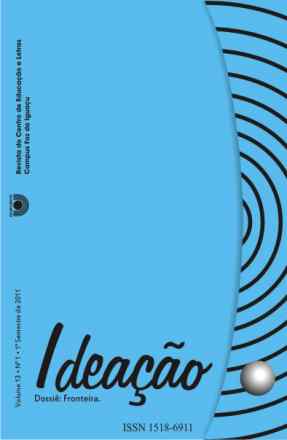PRINCÍPIOS FILOSÓFICOS E PEDAGÓGICOS DO PROGRAMA NACIONAL DE EDUCAÇÃO NA REFORMA AGRÁRIA (PRONERA)
Ideação
PRINCÍPIOS FILOSÓFICOS E PEDAGÓGICOS DO PROGRAMA NACIONAL DE EDUCAÇÃO NA REFORMA AGRÁRIA (PRONERA)
Autor Correspondente: Deise Mancebo¹, Daise Ferreira Diniz² | [email protected]
Palavras-chave: PRONERA; MST; Princípios político-pedagógicos; Educação do campo
Resumos Cadastrados
Resumo Português:
O texto apresenta e discute a proposta político-pedagógica do Programa Nacional de Educação na Reforma Agrária (PRONERA). Considera que o Programa retrata um exemplo de política pública que foi gestada a partir das demandas dos movimentos sociais do campo, de modo que sua implementação e ações encontram-se articuladas às demandas e propostas educacionais desses atores sociais, vinculando-se, especialmente, aos princípios educacionais propostos por um dos movimentos que o impulsionou, o Movimento dos Trabalhadores Rurais Sem Terra (MST). O texto divide-se em três partes. Na primeira, discute o campo brasileiro, particularmente, o aprofundamento da produção agrícola, no modelo do agronegócio, como meio de inserção do país na economia mundializada e apresenta o movimento pela reforma agrária no Brasil. Na segunda parte, expõe o papel que a educação desempenha nas lutas do campo, em especial para o MST. Por fim, apresenta-se os princípios político-pedagógicos do PRONERA, tomando por base empírica os sete cadernos elaborados pelos protagonistas do Programa e que compõem a coleção “Por uma educação do campo”.
Resumo Inglês:
The paper presents and discusses the political-pedagogical proposal of the National Education Program in Agrarian Reform (PRONERA). It considers that the Program portrays a public policy that was gestated from the demands of the social movements of the field, so its implementation and actions are articulated with educational proposals of these social actors, especially, the principles proposed by the Landless Workers Movement (MST). The text is organized into three parts. At first, it discusses the Brazilian countryside, particularly the further development of agricultural production, in agribusiness model, as a means to greater integration with the global economy and presents the movement for agrarian reform in Brazil. The second part exposes the role that education plays in the struggles of the field, especially for MST. Finally, it presents the PRONERA’s politicalpedagogical principles, based on the discourse analysis of the seven books prepared by the protagonists of the Program and that make up the collection “By an education field”. In the conclusion, the article takes up the central argument, reaffirming that the philosophical and pedagogical principles of PRONERA converge toward what is postulated by the movement of the field, but records risks that always are presented in the contradictory relationship state/ social movements.

